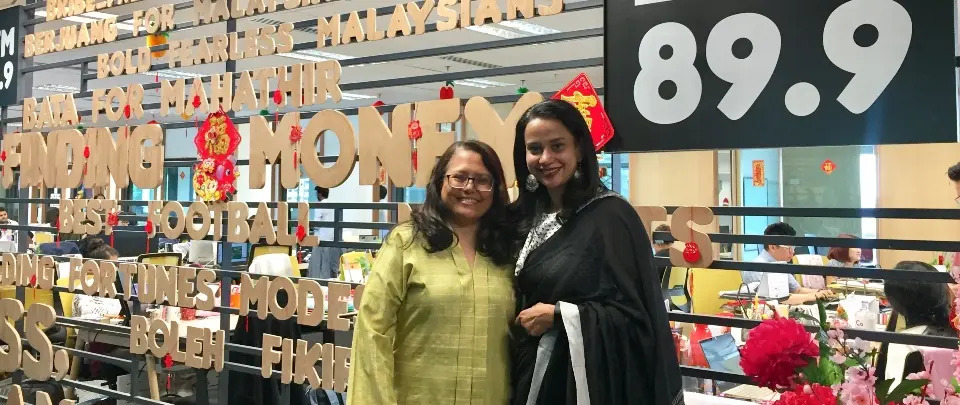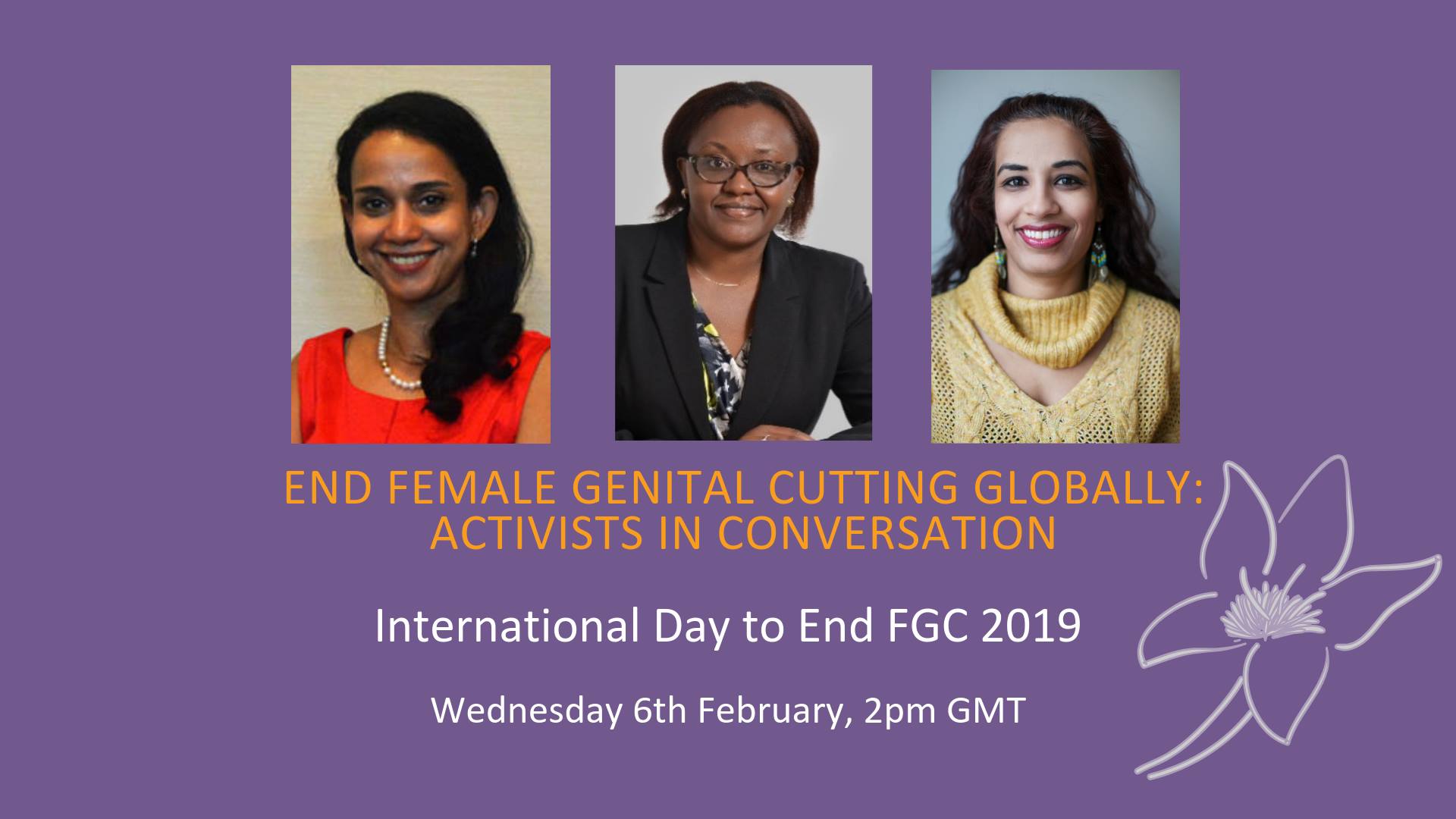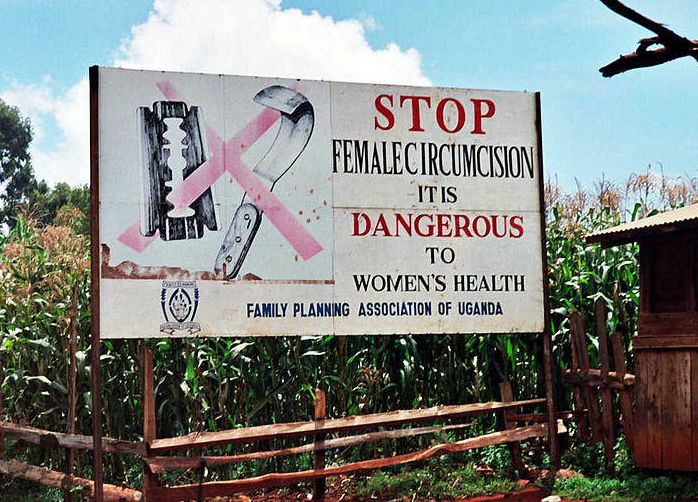Activists from around the world are calling on governments and members of the public to take action to support an end to female genital cutting.
Cutting impacts at least 200 million women and girls, in over 45 countries across Africa, Asia, the Middle East, and within diaspora communities worldwide. It is a truly global issue, which presents multiple, complex challenges within each different context where girls are affected.
The good news is that committed activists, grassroots organisations, communities, NGOs and, increasingly, governments are turning towards this issue. Together we are presenting solutions as to how we can protect girls and allow them to thrive, free from the practice.
We are seeing significant progress. UNICEF reports that a girl is around one third less likely to be cut today than she was three decades ago. More and more, communities are deciding to leave cutting behind, but there is still so much more to be done.
On the International Day to End FGC 2019, Orchid Project brought three esteemed guests together to speak live on Facebook about the global movement to end cutting, and the challenges that we still face.
We were joined by Sivananthi Thanenthiran, Executive Director of The Asian-Pacific Resource and Research Centre for Women (ARROW), based in Malaysia, Wairimu Munyinyi-Wahome, Executive Director of the Coalition on Violence Against Women (COVAW) in Kenya, and Mariya Taher, Co-Founder of transnational Indian & US organisation, Sahiyo.
They called for governments and members of the public to take action and support an end to this harmful traditional practice.
Together with Siva, Wairimu and Mariya, we call on governments to:
- Engage meaningfully with custodians of the practice, such as cultural and religious leaders.
- Report on UN Sustainable Development Goal Indicator relating to cutting (5.3.2).
- Provide dedicated budgets and resources towards ending the practice.
- Support greater data collection on the practice at national, regional and local levels.
- Engage, support and partner with grassroots, community-led initiatives.
- Recognise cutting as a global issue, particularly in contexts such as Malaysia where it is not yet acknowledged.
- Approach cutting as a human rights issue, acknowledging that all forms of the practice are a rights violation, and harmful to women and girls.
…and for members of the public to:
- Elevate the voices of women, girls and communities affected by cutting on platforms like social media.
- Share and talk about the practice with friends, family and colleagues to raise awareness.
- Write to local and national representatives, asking them to support change.
- Support, volunteer and donate to organisations working to end FGC.
- Stay up-to-date with organisations working to end the practice, such as Sahiyo, COVAW, ARROW and Orchid Project.
By: Orchid Project
FEBRUARY 4 — Malaysia should ban female genital mutilation/ cutting (FGM/C), and work with health and religious authorities, and the community to end the practice immediately.
We appeal to the government to enforce laws that protect a woman’s right to bodily integrity and autonomy, ahead of the International Day of Zero Tolerance for FGM on Wednesday.
“It has been a year since the UN’s Convention on the Elimination of All Forms of Discrimination against Women (CEDAW) Committee criticised Malaysia for practising FGM/C,” said Sivananthi Thanenthiran, Executive Director of the Asian Pacific Resource and Research Centre for Women (ARROW), a regional NGO that champions sexual and reproductive health and rights of women and young people. “CEDAW committee members from Muslim countries like Egypt asked the Malaysian Government to revisit the 2009 decision by the National Fatwa Committee that made it obligatory, and urged the Government to abolish it.”
Rozana Isa, Executive Director of Sisters in Islam (SIS), said “Islam did not introduce circumcision of girls to the world. Circumcision of girls can be traced back to pre-Islamic traditions. Nevertheless, the modern Islamic world has made a clear stance that FGM, no matter how insignificant, has a clear harm factor and is categorically unIslamic.”
Dar al-Ifta al Misriyyah, which is among the pillars of the religious foundations in Egypt (and includes Al-Azhar Al-Sharif, Al-Azhar University, Ministry of Religious Endowments, and Dar al-Ifta al-Misryyah), had declared all forms of FGM, including female circumcision, to be religiously forbidden from May last year. The organisation said that banning FGM should be a religious duty of all Muslim countries due to its harmful effects on the body. Al-Azhar is considered the authoritative reference for Sunni religious authorities throughout the world, including Malaysia.
In February last year, the CEDAW Committee said that women’s rights had regressed in Malaysia, and urged the government to abolish FGM, which takes place in certain Muslim Malay communities. At the Universal Periodic Review (UPR) in Geneva in November, the Women, Family and Community Development Ministry denied the practice of FGM, but said female circumcision was done on babies as part of a cultural obligation.
FGM refers to all procedures involving partial or total removal of the external female genitalia or other injury to the female genital organs for cultural or other non-medical reasons. The World Health Organisation (WHO) has identified four types of FGM (details below). In Malaysia, Type 4 — pricking, piercing, incising, scraping or cauterisation — is common, and reports indicate Type I — also called clitoridectomy, which is the partial or total removal of the clitoris and/or the prepuce — is also common as described by doctors engaged in the practice.
“FGM has long lasting physical and psychological effects on girls. Continuing the practice means further eroding Malaysia’s human rights record. We call on the government to abolish the practice and implement the recommendations of the CEDAW Committee and the UPR. All Malaysian girls and women deserve to grow up free from harmful practices that endanger their health and well-being,” Thanenthiran said.
In conjunction with the International Day of Zero Tolerance for FGM, ARROW will be part of a Facebook Live discussion, “End female genital cutting globally: Activists in Conversation, on Feb 6 on Wednesday at 2pm GMT. Hosted by the Orchid Project, a UK-based charity, the discussion will include activists from Sahiyo, an India-based NGO, the US, and Kenya, to discuss how action at the grassroots can be supported, to end FGC globally.
The link to the event is http://bit.ly/2Fxoopf.
* Press statement by Asian Pacific Resource and Research Centre for Women.
** This is the personal opinion of the writer or publication and does not necessarily represent the views of Malay Mail.
By: The Malay Mail
PETALING JAYA: Malaysia should ban female genital mutilation (FGM) and work with health and religious authorities, as well as the community, to end the practice, says two women non-governmental organisations (NGOs).
“We appeal to the government to enforce laws that protect a woman's right to bodily integrity and autonomy, ahead of the International Day of Zero Tolerance for FGM on Feb 6,” the Asian-Pacific Resource and Research Centre for Women (Arrow) and Sisters in Islam (SIS) said in a joint statement on Monday (Feb 4).
Arrow executive director Sivananthi Thanenthiran said FGM has long lasting physical and psychological effects on girls.
“Continuing the practice means further eroding Malaysia’s human rights record.
“We call on the government to abolish the practice and implement the recommendations of the United Nations’ Convention on the Elimination of All Forms of Discrimination against Women (Cedaw) Committee and the Universal Periodic Review (UPR).
“All Malaysian girls and women deserve to grow up free from harmful practices that endanger their health and well-being,” she said.
Sivananthi added that even Cedaw committee members from Muslim countries such as Egypt have asked the Malaysian government to revisit its 2009 decision by the National Fatwa Committee.
SIS executive director Rozana Isa said Islam did not introduce circumcision of girls to the world, adding that the practice can be traced back to pre-Islamic traditions.
Nevertheless, Rozana said that the modern Islamic world has made a clear stance that FGM has a “clear harm factor and is categorically un-Islamic”.
The government had previously reaffirmed its stand that female circumcision was part of Malaysian culture.
Deputy Prime Minister Datuk Seri Dr Wan Azizah Wan Ismail said that female circumcision in Malaysia was unlike the extreme FMG practised in some African countries.
Dr Wan Azizah, who is also the Women, Family and Community Development Minister, said that her Ministry would look into the issue.
The World Health Organisation (WHO) describes FGM as “all procedures that involve partial or total removal of the external female genitalia, or other injury to the female genital organs for non-medical reasons”.
In Malaysia, the most prevalent form of FGM among Muslims is Type I, where the clitoral hood is removed.
Some practise Type IV, a ritual form that includes pricking or nicking of the genitals.
By: The Star




